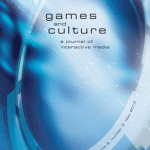Studio Studies: Debugging the Culture and Work of Game Developers

The Digital Games Research Association (DiGRA) now annual meeting (it was previously a biennial event) was held in Snowbird, Utah this week, hosted by the University of Utah. I was present for two events, the first: “The Playful is Political: A Fishbowl Conversation on Identity and Diversity in Game Culture,” an event organized by Shira Chess (University of Georgia) and Adrienne Shaw (Temple University). The second was a panel I organized, discussing the rise of “studio studies” or “industry studies” in the broader field of Game Studies.
Panel Justification
The 2013 Special Issue of the Journal, “Loading…” marked a renewed interest in Game Studies in the goal of studying the production of games. That issue signaled a rising focus on the cultural production of games as a site for analytic attention. While there are numerous examples of research that pre-dates this time, the marked resurgence of attention is important. This panel centers on what has only recently been generically titled “Studio Studies”, bringing together a variety of scholars doing various forms of research inside game development studios from a range of geographic locations. Each presenter will be given a short amount of time to characterize the kind of research they have done in game development contexts and discuss key findings of those research projects.
Jen Whitson will discuss her fieldwork in the Montreal indie scene. Her year-long ethnography of a game studio incubator is a peek inside independent game studios, highlighting the often bloody intersection of identity work, gaming culture, and venture labour, and developers’ search for financially stable, creatively fulfilling careers.
John Banks will discuss his decade long research on the topic of co-creativity in the videogames industry including his recent collaboration on Key Concepts in Creative Industries. Co-creativity in particular has become a significant cultural and economic phenomenon. Media consumers have become media producers. His research offers a rich description and analysis of the emerging participatory, co-creative relationships within the videogames industry.
Tanya X. Short is the co-founder of Pixelles as well as a professional game designer. She will discuss her Pixelles work’s findings in encouraging women to make their first game prototype through workshop series, as well as findings from the Pixelles mentorship program. She will briefly describe the work practices of these ‘women on the fringe’ of the industry, especially the practices they find most welcoming, productive, and empowering.
Olli Sotamaa will talk about his project on the Finnish game industry exploring Supercell, Rovio and others. He will discuss how the combination of general labour legislation, low hierarchies and overall co-operative spirit has shaped the local development culture. At the same time, the studios can differ significantly from each other, and therefore he will take a closer look at some of the practices that studios use to build a “culture of fun”, closely connected to the ethos of “work as play”.
Casey O’Donnell (panelist and organizer) will discuss the connections between his early work studying large “AAA” console game development studios. Casey will discuss his transition to studying online hobbyist game developers and differences between those approaches and his early research. He will discuss his three year ethnographic study of a small studio developing educational games and simulations for science education and more recent work exploring the development of science crowdsourcing games.
After panelists presentations, it will transition to an interactive format, where the organizer of the panel will prompt the panel with a variety of issues specific to studying game developers and game development studios. These prompts will come in the form of questions pre-circulated amongst the panelists such as:
- “How do you get access to these companies?”
- “What kind of data are you even gathering?”
- “What kinds of methods are you using?”
- “What kinds ethical dilemmas have you faced in these contexts?”
- “What kinds methodological quandaries have you faced in these contexts?”
- “What kinds of conceptual (theoretical) frameworks are you using?”
- “Where have you not looked at that you think is important for future work by yourself or others?”
- “How does one fund this kind of research?”
At any point once the pre-circulated questions are launched, the floor will also be open to the audience to ask questions or follow up on those asked by the prompts. The goal of the panel is to openly and candidly discuss issues that would enable new connections and collaborations for those looking to explore the work and culture of game creators.
PANELIST BACKGROUNDS
Jennifer Whitson
Jennifer Whitson is a postdoctoral fellow at the Technoculture, Arts, and Games Research Centre (TAG) at Concordia University in Montreal, Canada. She is an embedded ethnographer at Execution Labs and runs TAG’s summer game-making incubator, Critical Hit. You can find her work in Economy & Society, FibreCulture, First Monday, and Surveillance & Society, as well as the 2014 edited collection The Gameful World. Her research focuses on the secret life of software, the people who make it, and its impact on our everyday lives.
John Banks
John Banks is a senior lecturer (Head of Postgraduate Coursework Studies) and researcher in the Creative Industries faculty, Queensland University of Technology, Australia. He researches and publishes on co-creativity, innovation and social media in the creative industries, especially videogames and interactive entertainment. He has a special interest in organizational and workplace culture. His research has been funded by the Australian Research Council.
Tanya X. Short
Tanya X. Short is the Creative Director for Kitfox Games, after working as a designer for ten years in online games, from textual worlds in the early 2000s to The Secret World and Age of Conan at Funcom. She co-founded Pixelles in 2012, a non-profit group dedicated to increasing game development diversity, working with women who are curious about games as an expressive medium, as well as women who are hoping to join the industry.
Olli Sotamma
Olli Sotamaa is a Postdoctoral Research Fellow at School of Information Sciences, University of Tampere, Finland. Sotamaa has published in and edited special issues for several scholarly journals including Convergence, Fibreculture, First Monday, Games and Culture, Game Studies, International Journal of Arts and Technology, and Simulation and Gaming. His research interests include user-generated content, player cultures, player-centered design, and game industry analysis. His current project on the Finnish game industry (2011-2015) is funded by the Academy of Finland.
Casey O’Donnell
Casey O’Donnell is an Assistant Professor in the Department of Media and Information at Michigan State University. His research examines the creative collaborative work of videogame design and development. This research examines the cultural and collaborative dynamics that occur in both professional “AAA” organizations and formal and informal “independent” game development communities. His research has spanned game development companies from the United States to India. His first book, “Developer’s Dilemma” will be published by MIT Press in 2014. His work has been funded by the National Science Foundation (NSF) and the National Institute of Health (NIH).



